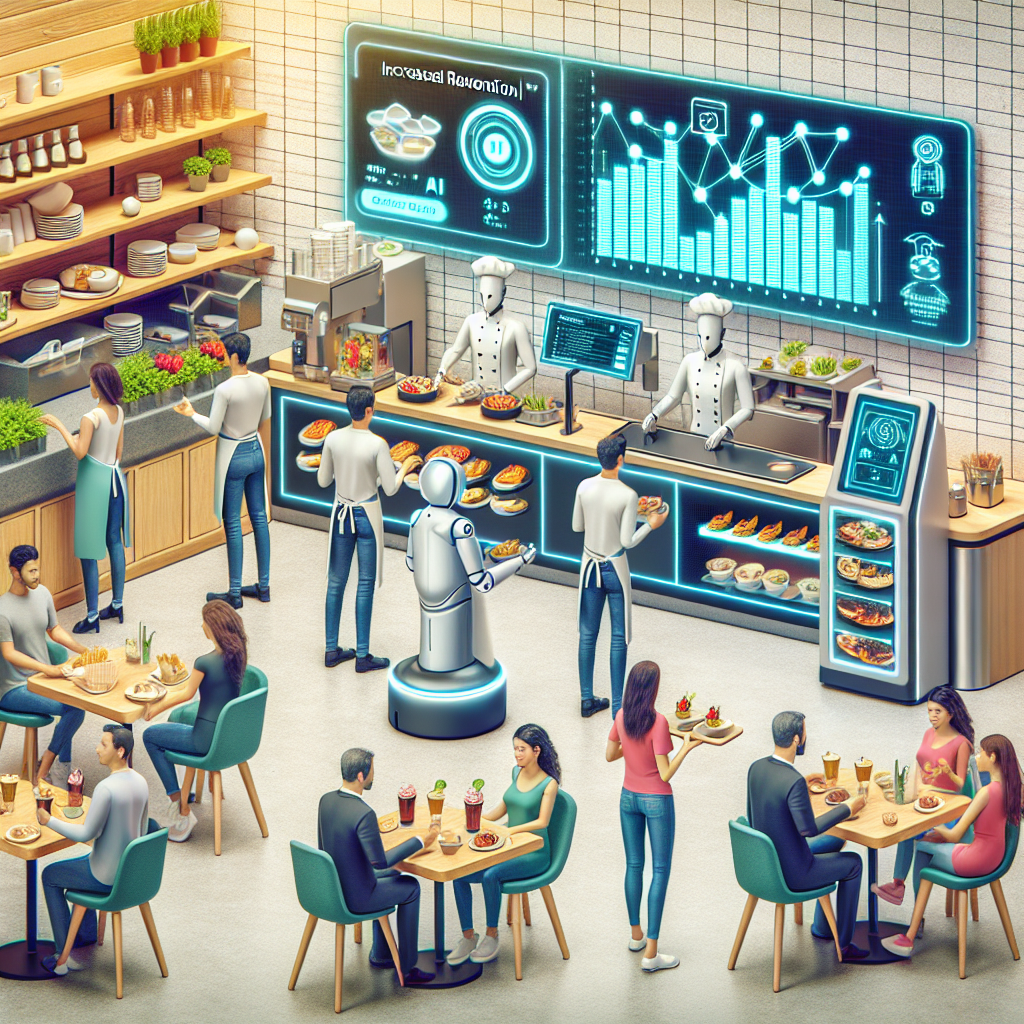Artificial Intelligence (AI) has been a transformative force across various industries, and the restaurant sector is no exception. By leveraging AI, restaurants can enhance operational efficiency, boost revenue, and create personalized dining experiences for their customers. This article delves into how AI is revolutionizing the restaurant industry, highlighting the key areas where it makes a significant impact.
Understanding AI: A Game Changer for Restaurants
Artificial Intelligence encompasses a range of technologies that enable machines to perform tasks that typically require human intelligence, such as learning, problem-solving, and decision-making. In the context of restaurants, AI can analyze vast amounts of data to optimize various aspects of operations, from inventory management to customer service. The integration of AI systems allows restaurants to operate more efficiently, reduce costs, and adapt to changing consumer preferences, making it a game changer in the industry.
Key Areas Where AI Enhances Restaurant Efficiency
AI enhances restaurant efficiency in several key areas, including supply chain management, staff scheduling, and order processing. By using predictive analytics, AI can forecast demand more accurately, ensuring that restaurants maintain optimal inventory levels and reduce food waste. Additionally, AI-driven scheduling tools can create more effective staff rosters based on historical data and real-time conditions, minimizing labor costs while ensuring adequate staffing. Automated order processing systems also streamline kitchen operations, reducing wait times and improving overall service quality.
Boosting Revenue Through AI-Driven Customer Insights
AI provides valuable insights into customer behavior and preferences, enabling restaurants to tailor their offerings and marketing strategies more effectively. By analyzing data from various sources, such as social media, online reviews, and loyalty programs, AI can identify trends and patterns that inform menu development, pricing strategies, and promotional campaigns. This targeted approach not only enhances customer satisfaction but also drives revenue growth by attracting and retaining a loyal customer base.
Streamlining Operations with AI-Powered Tools
AI-powered tools are instrumental in streamlining restaurant operations, from kitchen management to front-of-house services. For instance, AI-based kitchen display systems can prioritize orders and optimize workflow, ensuring that dishes are prepared in the most efficient sequence. Front-of-house, AI chatbots and virtual assistants can handle reservations, answer customer inquiries, and even assist with menu selections, freeing up staff to focus on providing a higher level of personalized service. These tools collectively contribute to a smoother, more efficient restaurant operation.
The Role of AI in Personalized Dining Experiences
Personalization is increasingly important in the dining industry, and AI plays a crucial role in delivering customized experiences to customers. By leveraging data on individual preferences and past behaviors, AI can recommend dishes, suggest wine pairings, and even tailor special offers to specific customers. This level of personalization enhances the dining experience, making customers feel valued and appreciated. Moreover, AI-driven personalization can increase customer loyalty and encourage repeat visits, contributing to long-term revenue growth.
Overcoming Challenges in Implementing AI in Restaurants
While the benefits of AI are clear, implementing these technologies in restaurants comes with its own set of challenges. High initial costs, data privacy concerns, and the need for staff training are significant barriers that restaurants must overcome. Additionally, integrating AI systems with existing infrastructure can be complex and time-consuming. To address these challenges, restaurants should start with small-scale implementations, invest in employee training, and prioritize transparency with customers regarding data usage. By taking a phased and strategic approach, restaurants can successfully harness the power of AI to enhance their operations and profitability.
AI is undoubtedly reshaping the restaurant industry, offering numerous opportunities for enhanced efficiency, increased revenue, and personalized customer experiences. While challenges exist, the strategic implementation of AI can provide restaurants with a competitive edge in a rapidly evolving market. As AI technologies continue to advance, their role in the restaurant sector will only become more significant, paving the way for innovative solutions and improved dining experiences.


